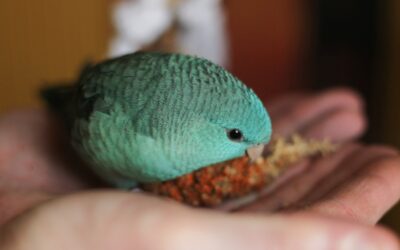You may have wondered, “Can dogs eat pineapple?” This tropical fruit is delicious and packed with nutrients, but is it safe for your furry friend?
You love your dog and want to give them the best. That includes knowing which human foods are safe for them to eat. In this guide, we’ll explore everything you need to know about feeding pineapple to dogs. From pineapple’s health benefits to the risks of feeding too much, we’ll cover it all.

What is Pineapple?
Pineapple is a tropical fruit known for its sweet and tangy flavor. It is rich in vitamins, minerals, and antioxidants, making it a popular choice for health-conscious consumers. But what about our four-legged friends? Can dogs benefit from this tasty treat as well?

Benefits of Pineapples for Dogs and Humans
For Dogs
- Nutrient-Rich: Pineapples are packed with essential vitamins like vitamin C, which boost the immune system and help fend off illnesses.
- Digestive Health: The dietary fiber in pineapple aids digestion, preventing constipation and promoting a healthy gut for dogs.
- Skin and Coat Improvement: Antioxidants and vitamins found in pineapple contribute to healthier skin and a shiny coat, reducing the risk of skin irritations.
- Energy Boost: The natural sugars in pineapple serve as a quick source of energy, making them a great treat for active dogs.
- Anti-Inflammatory Properties: Certain compounds in pineapple have anti-inflammatory effects, which may help relieve joint pain and support overall mobility.
For Humans
- Rich in Nutrients: Pineapples are a great source of vitamins C and B6, manganese, and dietary fiber, all of which are essential for maintaining optimal health.
- Digestive Aid: The bromelain enzyme found in pineapple helps break down proteins and aids digestion, which can reduce bloating and discomfort.
- Anti-Inflammatory Effects: Bromelain also has anti-inflammatory properties, potentially aiding in the recovery from injuries and reducing swelling.
- Weight Management: Low in calories and high in water content, pineapple is a satisfying snack that can assist in weight management.
- Bone Health: The manganese in pineapple supports bone strength and health, contributing to overall skeletal integrity.
- Immune Support: The high levels of antioxidants and vitamin C strengthen the immune system, helping the body fend off illnesses.
- Heart Health: The potassium in pineapple can help regulate blood pressure and support cardiovascular health.
Incorporating pineapple into the diets of both dogs and humans can unlock numerous health benefits, making it a versatile and nutritious treat for all. However, as with any food, moderation is vital to reap the benefits without encountering potential risks.
Can Dogs Eat Pineapple?
Yes, dogs can eat pineapple, but there are some important guidelines to follow. Fresh pineapple is the best option, as it contains no added sugars or preservatives.
Pineapple in moderation can be great for your dog’s immune system and a sweet treat. Make sure to always feed pineapple in bite-sized chunks to make the pineapple safe for your dog to eat. Always remove the spiny skin and the tough pineapple core, as these parts can be difficult for dogs to digest and may pose a choking hazard.
How to Safely Feed Pineapple to Your Dog
When feeding pineapple to your dog, moderation is key. Here are some tips to ensure you do it safely:
- Start Small: Introduce pineapple gradually to see how your dog reacts. A few chunks as an occasional treat is a good starting point.
- Bite-Sized Pieces: Cut the pineapple into small, bite-sized pieces to prevent choking.
- Avoid Added Sugars: Stick to fresh raw pineapple and avoid canned fruits with added sugars, which can lead to weight gain and dental issues.

Potential Risks of Feeding Pineapple to Dogs
While pineapple has many benefits, there are also some potential risks to be aware of:
- Too Much Sugar: Pineapple contains natural sugar, which can be harmful in large quantities. It can lead to weight gain, dental issues, and even diabetes.
- Digestive Issues: Feeding too much pineapple can cause an upset stomach, diarrhea, or vomiting.
- Choking Hazard: Always remove the skin and core to prevent choking and ensure the pineapple is cut into small pieces.
Different Ways to Feed Your Dog Pineapples
Incorporating pineapple into your dog’s diet can be both fun and creative. Here are some different ways to serve pineapple to your furry friend.
- Fresh Pineapple Chunks: Cut fresh pineapple into small, bite-sized pieces. This simple preparation allows your dog to enjoy the pure taste and texture of the fruit.
- Frozen Pineapple Treats: Can dogs eat frozen pineapple? Yes! Freeze small chunks of pineapple for a refreshing treat on hot days. Simply place the pieces in a dog-safe container and let them freeze. These can be especially enjoyable during summertime.
- Pineapple Smoothie: Blend pineapple chunks with some plain yogurt or water to create a tasty smoothie. Serve it in a bowl as a special treat, but ensure the yogurt is free from added sugars or artificial sweeteners.
- Pineapple and Peanut Butter: Mix small amounts of crushed pineapple with dog-safe peanut butter. This combination can be spread onto toys or served in a bowl for a delicious and nutritious snack.
- Pineapple Dog Treats: Incorporate pineapple into homemade dog treats. You can create baked treats using flour, eggs, and crushed pineapple, ensuring they are safe and healthy for your dog.
- Pineapple in Kibble: Add a sprinkle of fresh pineapple chunks on top of your dog’s regular kibble to provide some variety and a burst of flavor.
Using these methods, you can introduce pineapple into your dog’s diet in enjoyable ways while keeping their meals exciting and nutritious. Always ensure any pineapple treats are served in moderation and observe your dog for any adverse reactions.

Can Dogs Eat Dried Pineapple?
Dried pineapple can be a convenient treat, but it often contains added sugars and preservatives. If you choose to feed your dog dried pineapple, make sure it is unsweetened and given in moderation.
Can Dogs Eat Canned Pineapple?
Canned pineapple typically contains added sugars and preservatives, making it less healthy than fresh pineapple. If you must use canned pineapple, opt for varieties packed in water rather than syrup, and rinse it thoroughly before feeding it to your dog.
Can Dogs Drink Pineapple Juice?
While fresh pineapple juice can offer some of the same benefits as the fruit, it is high in natural sugars and should be given sparingly. Bottled pineapple juice often contains added sugars and should be avoided.
Can Dogs Eat Pineapple Skin and Core?
The skin and core of the pineapple are tough and difficult to digest. They can pose a choking hazard and are best avoided. This means don’t let dogs eat pineapple core and this can affect the dog’s digestive system! Always remove these parts before giving pineapple to your dog.
How Much Pineapple is Safe for Dogs?
Moderation is crucial when feeding pineapple to your dog. Small dogs can have a few chunks, while larger dogs can safely consume a bit more. Always monitor your dog for any signs of digestive upset and adjust the amount accordingly.

Alternatives: Other Fruits That Dogs Can Enjoy
In addition to pineapple, there are several other fruits that can be beneficial for dogs. Here are some popular options and their respective health benefits:
1. Blueberries
- Antioxidant Powerhouse: Blueberries are loaded with antioxidants, which help combat free radicals and can reduce the risk of certain diseases.
- Cognitive Health: Studies suggest that the antioxidants in blueberries may support brain health and improve memory in older dogs.
2. Apples
- Fiber-Rich: Apples provide dietary fiber, which aids in digestion and can keep your dog’s gut health in check.
- Vitamin C: They are a good source of vitamin C, supporting the immune system and overall health. Just remember to remove the seeds and core before feeding.
3. Watermelon
- Hydration: Watermelon is mostly water, making it an excellent hydrating treat. It’s perfect for hot days.
- Low in Calories: Watermelon is low in calories, making it a guilt-free snack for dogs.
4. Bananas
- Potassium Source: Bananas are rich in potassium, which supports heart health, muscle function, and overall energy levels.
- Natural Energy Boost: The natural sugars in bananas provide a quick energy source, ideal for active dogs.
5. Strawberries
- Vitamins and Antioxidants: Strawberries contain vitamins C and K as well as antioxidants that can help improve skin health and reduce inflammation.
- Dental Health: They are also considered beneficial for dental health as they can help whiten teeth and freshen breath.
6. Oranges
- Vitamin C: Oranges are another source of vitamin C, which boosts immunity and helps in fighting infections.
- Hydration: They’re juicy and hydrating, but ensure to remove any seeds and limit portions due to their citric acid content.
When introducing these fruits into your dog’s diet, moderation is key. Always start with small amounts to ensure your dog tolerates the new food well. These alternatives can add variety to their diet while providing many health benefits.
Useful Information Related to Dog Nutrition and Fruits
- American Kennel Club – Fruits Dogs Can and Can’t Eat
- PetMD – Can Dogs Eat Pineaapple
- The Spruce Pets – Healthy Fruits for Dogs
- Humane Society of Greater Dayton – Fruits and Vegetables for Dogs
- Rover – Human Foods That Are Good for Dogs
- Veterinary Partner – Fruit and Vegetables in a Dog’s Diet

Using Kate’s K9 Pet Care Services
When it comes to ensuring your dog receives the best care possible, Kate’s K9 Pet Care Services stands out as a trusted option.
Our dedicated team is passionate about providing high-quality pet care, including dog walking, playtime, and many more tailored services to meet your furry friend’s individual needs. With a focus on both the physical and emotional well-being of your pets, we offer services that ensure your dog is healthy, happy, and well-loved.
To learn more about what we offer and how we can assist in your dog’s care, visit our website and explore our range of services today!
Conclusion
Pineapple can be a healthy treat for your dog when given in moderation. It offers several nutritional benefits, including boosting the immune system, aiding digestion, and improving skin and coat health.
However, it’s important to be aware of the potential risks, such as too much sugar and digestive issues. Always remove the skin and core, and cut the pineapple into small, bite-sized pieces to prevent choking.
By following these guidelines, you can safely incorporate pineapple into your dog’s diet and provide them with a delicious and nutritious treat. If you’re looking for more ways to improve your dog’s health, consider consulting with a veterinarian or a professional animal nutritionist.
For more tips on feeding your dog and ensuring their overall well-being, check out our other articles and resources. Happy feeding!







